últimas notícias
Categorias de Produtos
Quente Produtos
-
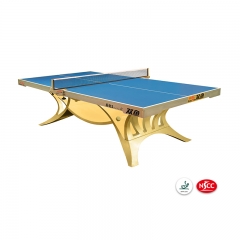
Mesa de tênis de mesa premium para campeonatos Volant King
Esta tabela de tênis de mesa premium é adequada para campeonatos. Aprovado pela ITTF e NSCC. Silver Undercarriage + Blue Light
consulte Mais informação -
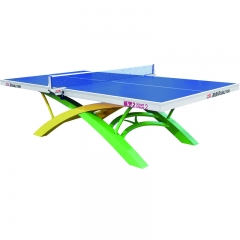
Mesa de tênis de mesa oficial para torneio Volant Dream 2
Mesa de ping pong oficial Volant Dream 2 para competições internacionais desenhadas pela Double Fish Sports.
consulte Mais informação -
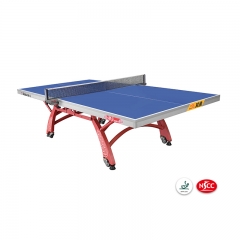
Mesa de tênis de mesa oficial para competições XIANGYU 328
Mesa de tênis de mesa portátil dobrável e duplo premium, design compacto O novo sistema de dobramento minimiza o risco de lesões durante o armazenamento e movimentação de mesa. Mesa de tênis de mesa aprovada pela ITTF.
consulte Mais informação -
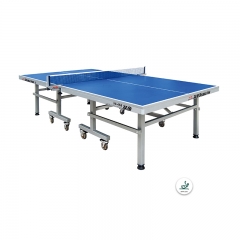
Mesa de tênis de mesa oficial para turismo mundial 99-45B
ITTF aprovou a mesa oficial de tênis de mesa durável para o torneio internacional. Espessura da placa de mesa: 25mm QUALIDADE DO TORNEIO - Esta tabela de qualidade profissional foi projetada para o mais alto nível de competição. PERFEITO PARA FAMÍLIAS - Oferece uma peça premium para todas as idades. Vá de frente para a cabeça ou dobre para prática individual. Os suportes de aço pesado de 2 polegadas sustentam os desafios mais difíceis. Uma excelente peça central para a sala de jogos, a sala de estar ou a academia. EASY ASSEMBLY - Participe jogando em minutos com montagem simples. A rede de alta qualidade está equipada com grampos de bloqueio facilmente ligados.
consulte Mais informação -
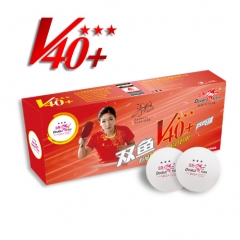
Melhor qualidade Double Fish V40 + Volant 3 Stars Table Tennis Ball
Double Fish V40 + Volant 3 Stars Table Tennis Ball é confirmado para as últimas Normas Técnicas T3 da ITTF.
consulte Mais informação -
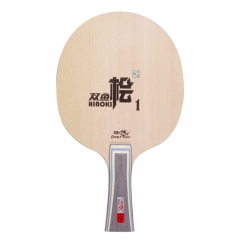
Double Fish QIJI All-round Table Tennis Blade
Lâmina de tênis de mesa QJJI de peixe duplo, que é a lâmina de tenis de mesa de tênis de mesa mais vendida, & nbsp; Perfeito para o jogador tradicional allround
consulte Mais informação
O espírito de trabalho duro丨A indústria aprende com Daqing——A fábrica de tênis de mesa de Chenggong mudou-se para Paolougang
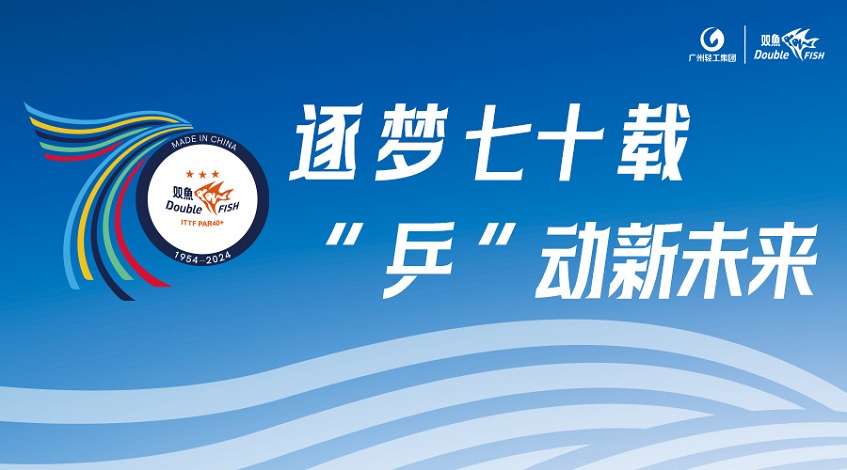
Durante os três anos de dificuldades económicas no início da década de 1960, o campo petrolífero de Daqing, na bacia de Songliao, no nordeste, representado por Wang Jinxi, levou adiante o espírito revolucionário de "não temer as dificuldades e o sacrifício", superou o bloqueio estrangeiro e construiu um grande campo petrolífero nacional de primeira classe e líder mundial em menos de três anos, sacudindo o chapéu de "país pobre em petróleo" imposto à China pelos países ocidentais e dando uma contribuição significativa para o desenvolvimento da construção socialista.
Em 1964, o Comité Central do Partido Comunista da China apelou à frente industrial nacional para "aprender com Daqing na indústria". O movimento de aprendizagem de Daqing na indústria foi principalmente para aprender com o espírito de autossuficiência e trabalho árduo de Daqing, de modo a promover o desenvolvimento de empresas industriais e mineiras e a construção socialista em todo o país.
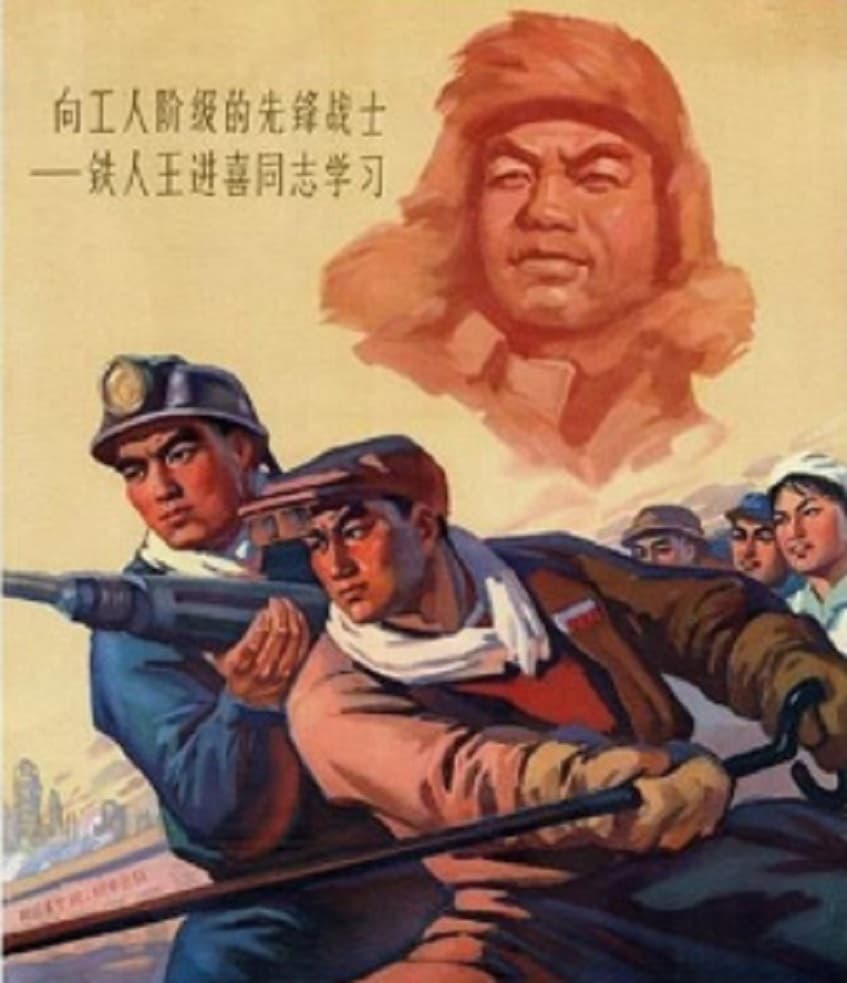
Cartaz de propaganda sobre o aprendizado de Daqing na indústria na década de 1960
Após vários anos de trabalho árduo, a Fábrica de Tênis de Mesa Chenggong nessa época tinha uma posição firme e a produção havia se desenvolvido. Só em 1963, esta pequena fábrica com apenas cerca de 100 pessoas pagou mais de 130 mil yuans em lucros ao Estado.
Em 1964, o superior alocou 240.000 yuans para investimento em construção de capital e decidiu transferir a fábrica dos subúrbios ao leste do Templo Boluo para os subúrbios ao sul de Paolougang①. O humor dos trabalhadores também mudou dos altos e baixos originais para cheio de expectativas e orgulho. Eles estão prestes a se mudar para o novo prédio da fábrica localizado no centro industrial da cidade, a Avenida Industrial.
① Nanjiao Paolougang fica perto da estrada Yanzigang nº 28, distrito de Haizhu. O terreno para onde se mudou a Fábrica de Tênis de Mesa Chenggong era originalmente uma fábrica de cerâmica, que já contava com instalações fabris básicas, o que proporcionava comodidade para a expansão da produção.
Nesse momento, alguém sugeriu aproveitar a oportunidade para melhorar muito o visual da fábrica. "Esta é uma boa oportunidade. Você pode pedir mais coisas e fazer com que a fábrica pareça boa. Se você perder esta oportunidade, nunca mais a encontrará." Algumas pessoas na fábrica ficaram ansiosas para ouvir isso e disseram: “Trabalhamos duro durante vários anos e finalmente conseguimos. Desta vez temos que mudar para uma nova fábrica e ter uma boa aparência!” Naquela época, a ala partidária percebeu que a discussão era tendenciosa. O que é "boa aparência"? Será aderir ao princípio da autossuficiência e do trabalho árduo e fazer com que a fábrica pareça uma empresa socialista, ou aproveitar a oportunidade para “fazer fortuna” com o Estado e fazer com que a fábrica pareça mais estrangeira e maior?
Late at night, Li Chao, then the party branch secretary, repeatedly thought: Is our rapid development contrary to Chairman Mao's teaching of "always remain modest, cautious, not arrogant, not impatient, and continue to maintain the style of hard work"? He began to worry that if this development continued, would it lead everyone astray and forget the hard-core spirit of the successful table tennis factory - "self-reliance and hard work", the tenacity that can persist even in the most difficult times.
Secretary Li Chao and the leadership of Chenggong Factory clearly realized that even after the material conditions were significantly improved, maintaining and promoting the spirit of hard work was still the key to the stable development of the enterprise. Guided by this spirit, Chenggong Factory, together with workers from all over the city, launched the "Learn from Daqing" activity, taking this as an opportunity to stimulate the enthusiasm for work and the motivation for self-improvement of all factory staff.
One night, six or seven people including veteran workers Yang Bing, Li Tian, party branch secretary Li Chao, and deputy factory director Huang Cheng sat under the peach tree transplanted from Polo Temple to learn from Chairman Mao's great call to the whole country to "learn from Daqing in industry." Everyone was talking about how hardship and contribution they had with the Daqing workers:
"In terms of hardship, the Daqing workers had the sky above their heads, the grasslands under their feet, and the ice and snow. It was much harder than when we were in the early days of building the factory in Boluo Temple and were 'making a revolution with three tools'."
"In terms of contribution, the Daqing workers drilled one oil well after another for the country, which helped our country get rid of the crutch of relying on kerosene to survive, and blazed a path of independence, self-reliance, and self-reliance to develop our country's oil industry. Their contribution was much greater than ours."
"However, the Daqing workers were not proud of their achievements and always maintained the revolutionary tradition of self-reliance and hard work. When we moved from Boluo Temple to the current place, the country gave us some investment to develop production. Some people said, 'After years of hard work, we finally made it. Now that we have moved the factory, we don't have to be pioneers anymore?...
The more we compared, the brighter our hearts became. The old workers said, "The longer we stretch our hands, the shorter our ambitions become. We must use the energy of 'making a revolution with three tools' to move the factory. "Some old workers said earnestly: "If we lose the fine tradition of hard work and self-reliance, we will go astray!" ②
② This paragraph was originally published in the Guangzhou Daily on April 23, 1975.
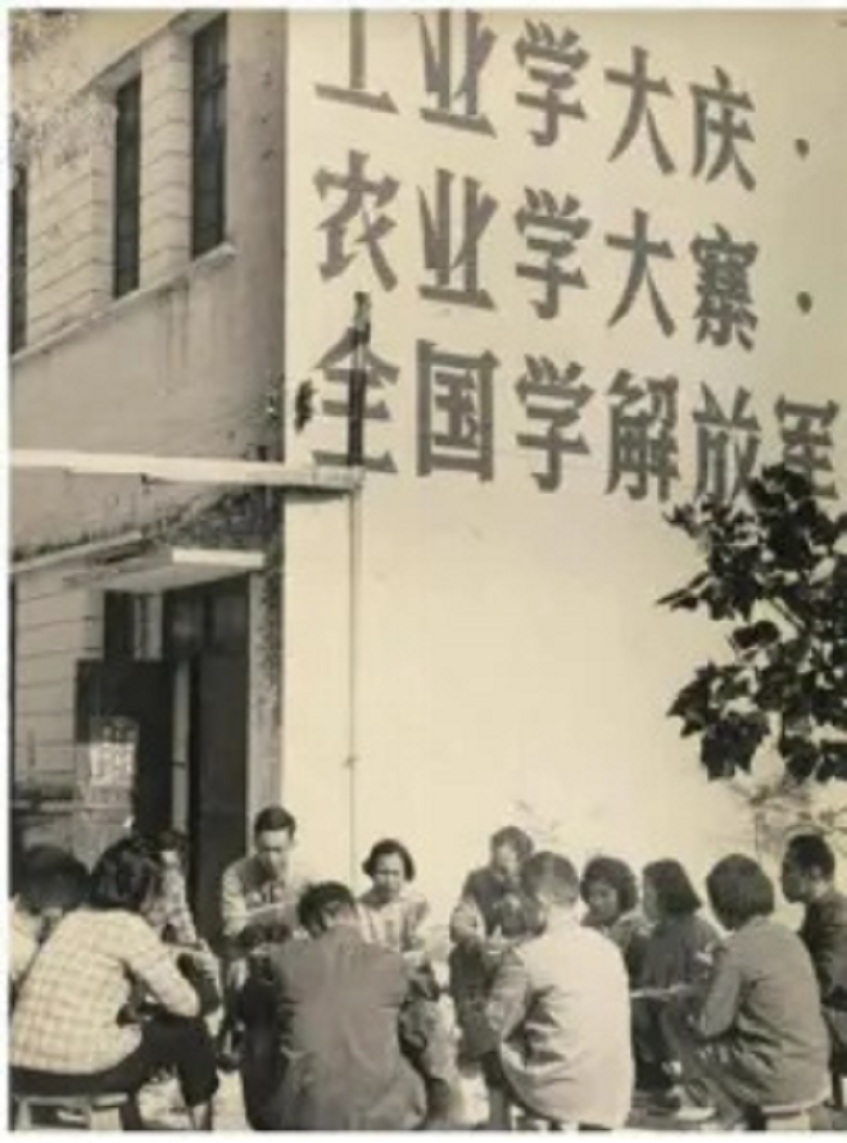
The Party Branch of Chenggong Table Tennis Factory carried out the Daqing Learning Activity
The vigorous fighting spirit of the old workers inspired the employees in the factory and educated those who wanted to "make a fortune". Everyone took out the fighting spirit of the year when they started their business, while insisting on production, relocating and building the factory. During the relocation process, Chenggong Factory did not stop production for a day.
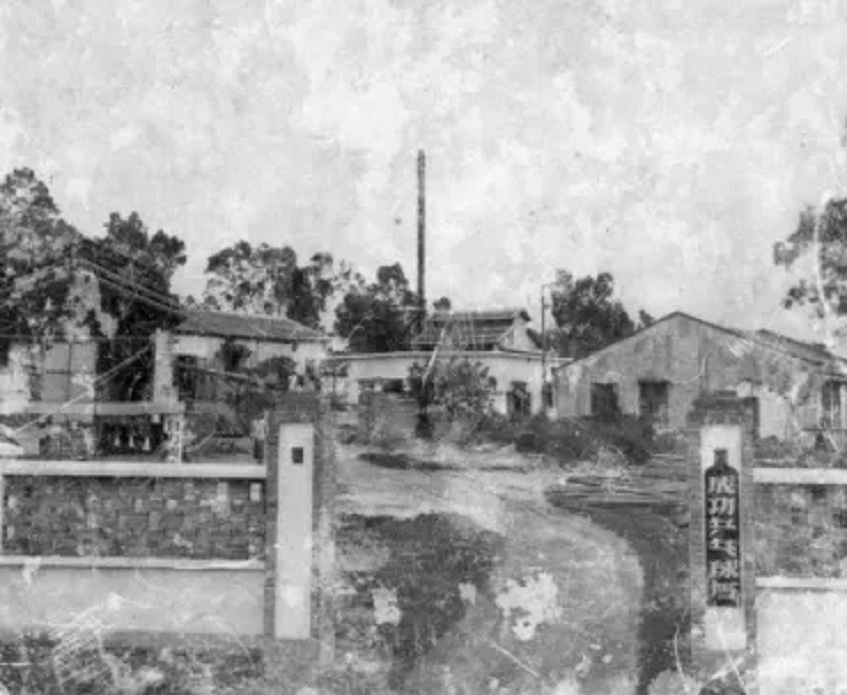
Chenggong Table Tennis Factory relocated to Yanzigang, Haizhu District
Paolougang next to Industrial Avenue used to have only a shabby small ceramic factory here, with a deserted environment and weeds all around. However, through the joint efforts of Chenggong Factory people, this scene has completely changed. Employees not only repaired roads and leveled land after work, but also built A new factory building of more than 2,000 square meters was built. Significant transportation costs were saved, and the relocation was completed during the Spring Festival holiday to ensure that production was not affected.
At that time, the production of table tennis balls required a lot of water resources. Faced with the high cost of tap water and unstable supply, the factory leaders and employees found an idea that was both cost-saving and environmentally friendly. Yang Bing and several other experienced old workers proposed to build a 400-square-meter return water pool and water tower in a low-lying area of the factory, so that the used water could be reused through cooling and filtration. The initial estimate was that it would cost 13,000 yuan, but the successful factory people who insisted on "self-reliance and hard work" believed that this cost could be lowered.
One day, old worker Yang Bing asked the factory leader: "Has the return water pool been contracted to the infrastructure unit?"
"Not yet. The construction team has been estimated to cost more than 10,000 yuan."
"We volunteered to do it ourselves! "
This proposal made Secretary Li Chao think for a long time. He thought, "Under difficult conditions, it is not easy to adhere to the principle of self-reliance and hard work, and to start a business relying on the "three treasures"; now that the family business is big and the conditions are good, it is key to continue to maintain that entrepreneurial spirit. So the next day at the staff meeting, Li Chao actively supported the initiative put forward by the old workers: carry forward the tradition of hard work of "three tools to make revolution" and build the return water pool by ourselves!
No inverno frio, os quadros e trabalhadores da Fábrica Chenggong, incluindo o Secretário da Secção do Partido, Li Chao, o Vice-Diretor da Fábrica, Huang Cheng, e os trabalhadores, participaram conjuntamente nesta árdua tarefa. Eles ficaram descalços na água lamacenta, sem medo do frio intenso, e insistiram em trabalhar uma hora todos os dias depois do trabalho. Cavar solo, bater concreto e construir paredes de piscinas. Depois de mais de três meses de trabalho árduo, eles não apenas construíram com sucesso a piscina de água de retorno e a torre de água, mas também economizaram ao país mais de 4.800 yuans em investimentos em infraestrutura. Desta forma, após três meses de trabalho voluntário após o trabalho, uma piscina de retorno de 20 metros de comprimento, 2 metros de largura e 2 metros de profundidade, como uma pequena piscina, foi construída a um custo de apenas mais de 6.000 yuans.
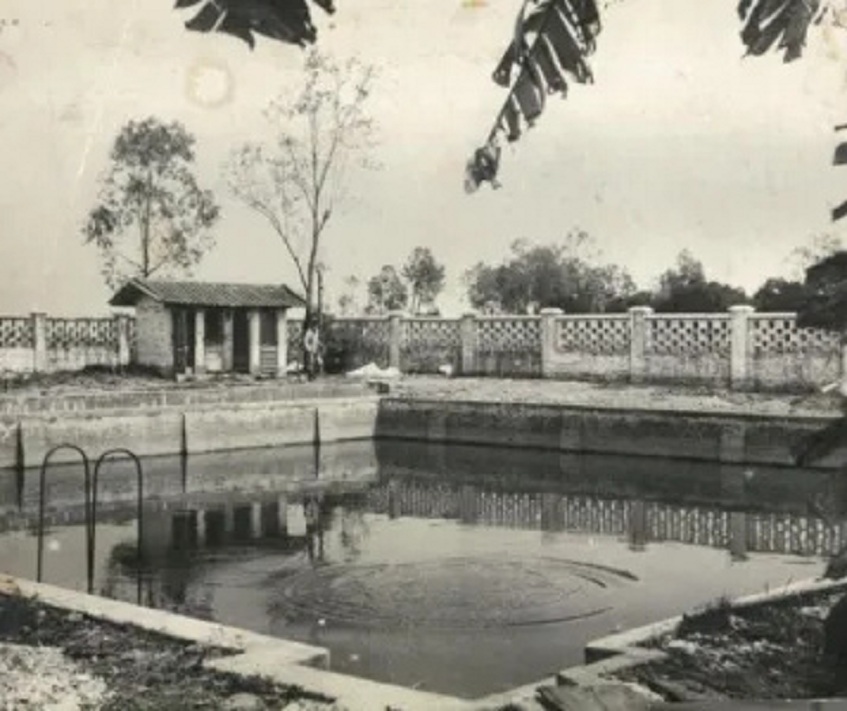
Piscina de retorno da fábrica de tênis de mesa Chenggong
Logo após a mudança, a fim de expandir a produção de bolas de tênis de mesa para atender à crescente demanda do mercado, o estado decidiu investir na Fábrica Chenggong e acrescentar o maquinário e prédios fabris necessários. No entanto, face a este investimento estrangeiro, os funcionários e a liderança da Fábrica Chenggong mostraram uma atitude invulgarmente cautelosa. Numa reunião do partido, discutiram como utilizar razoavelmente o investimento estatal. Durante a discussão, os quadros e trabalhadores da Fábrica Chenggong demonstraram notável autodisciplina. Eles revisaram cuidadosamente o plano de investimento do estado, um por um, esforçando-se para racionalizar todas as despesas e eliminando resolutamente os projetos que poderiam ser concluídos pela própria fábrica. No final, com exceção do navio a vapor, os 16 restantes dos 17 equipamentos especiais originalmente planejados para serem atualizados foram fabricados por eles próprios. O montante de financiamento estatal solicitado pela Fábrica Chenggong foi reduzido dos 240.000 yuans originais para 167.500 yuans. Através de cálculos cuidadosos, o país economizou 80.000 yuans em investimentos.
Uma série de eventos importantes durante o processo de realocação demonstrou a determinação da Chenggong Factory em aderir e promover o espírito de diligência e parcimônia. Como disseram alguns trabalhadores: “O espírito de 'autossuficiência e trabalho árduo' no Templo Polo floresceu e deu frutos em Paolougang”.























 +8620-84319554
+8620-84319554 +8620-84328948
+8620-84328948
 +86 13829778212
+86 13829778212